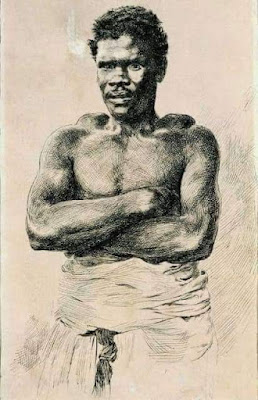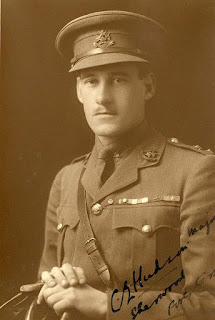On this day lost, but not forgotten Rankin was killed in action on November 15, 1969.
On this day lost, but not forgotten. John R. Rankin was born on July 22, 1948. His home of record is Blackwood, NJ. He served in the US Army and attained the rank of Specialist 4 (SP4).
Rankin was killed in action on November 15, 1969.
Johnny
July 22, 1948-November 15, 1969
SP4, Army Blackwood Terrace, NJ
Johnny Rankin always wanted to fly. Photos of him as a two-year old show him surrounded by model airplanes his father had built. He liked to watch his dad fly the wire-controlled gasoline powered planes. Before he went into the service, a neighbor took him along on a small plane ride over Gloucester and Camden counties. When he came home that day, his life had changed. His interest in planes had become a passion. Throughout his youth, he was fascinated with flight and in the end, he was fulfilling his dream as much as a duty to his country.
"He loved airplanes," his mother, Pat Hayes of Westville, NJ, says. "He had all the models. And when he wrote and told us that he had been selected for aviation in the service, you could almost see the words jump off the page. He was so happy."
The Rankin family split up in the early fifties as Johnny and his younger brother, Bob, grew from toddler to childhood. They spent much of their time with their maternal grandmother, Veronica Huss, who lived in Blackwood Terrace. She recalled Johnny as somewhat of an introvert. "He was real quiet, very handsome and shy," she said. "The girls thought he was too shy."
"He had a slim build and was very straight," she continued. "I think of him as a real neat person. He was a good student but not very athletic. I know that most little boys are fond of airplanes, but Johnny seemed to have a special affinity towards them. He was just interested in planes and science. He was very good at anatomy, and I think he could have become a doctor. I know he was anxious to join the service. He wanted something to do with aviation."
Pat Hayes remembers a trip to the Philadelphia Zoo. It was just before Johnny left for Vietnam. "We just enjoyed ourselves," she says. "Johnny liked the animals, especially the elephants."
In 1968, Johnny left Deptford High School as a junior and enlisted in the Army. He was trained as an aircraft mechanic at Fort Rucker, Alabama, after basic training at Fort Benning, GA. By January of 1969, he was on his way to Vietnam and the 71st Assault Helicopter Company in Chu Lai, along the coast of the South China Sea. The unit supported combat operations of the 23rd Infantry Division (Americal) in the northern coastal region of South Vietnam.
"I had mixed emotions, of course," his grandmother said. "We all did. But by entering the service, he felt he was doing his duty. I had told him I hoped that he didn't have anything to do with airplanes. He said he didn't. What I did not know was that he was flying in helicopters."
John M. Rankin was Johnny's father. He and Pat were divorced in 1953. The company he worked for sent him to Winston-Salem, N.C. soon after. It was there that he met his present wife of forty-six years. They had six children of their own and welcomed visits from Johnny, Bob, and some of their friends from up north.
"We did not know Johnny was doing anything other than being an airplane mechanic in Vietnam," his father says. "It was not until after his loss that we found that he retrained in Chu Lai to become a helicopter mechanic. After that, he became a crew chief flying combat missions. He never told us what he was doing."
Johnny went to Bangkok, Thailand, for his R&R and sent his mother a photo of him posing with an elephant. "I think he sent it as a reminder of the day we shared," Pat Hayes now says. "John didn't make friends easily, but when he found one, they got close." John made several friends in Vietnam and they were, indeed, close to him.
William Drewry is a retired Master Sergeant living in Wakefield, Virginia. He was also a member of the 71st Assault Helicopter Company in 1969 and remembers Johnny well. "I am proud to say that I knew him," he says. "He was a good man and a good friend. He would talk about his home and family. I can still hear the love in his voice when he talked about his family. I could tell he loved them very much."
Drewry continues. "He lived in a barracks with seven other men. The company area was located on the shore of the South China Sea. We had showers, hot food, a company movie screen and electricity. When not flying, John would read, watch movies, listen to music or play a card game called 'Spades'. Life in the rear area was nice and safe. John could have stayed in the rear and worked in maintenance, but he loved to fly. He volunteered to fly. John risked his life daily and died when his aircraft was shot down in November of 1969."
Several years ago, Johnny's father joined the 71st AHC/Co. A, 501st Battalion Association and has been in touch with several veterans who knew Johnny. The association holds a reunion every two years and John Rankin attends whenever possible. He writes:
The following account of John's last mission is a compilation of information told to me by the pilot of his Huey, Warrant Officer Edward Gwynn, and other men who served with him in Vietnam.
On November 15, 1969, a Huey aircraft, piloted by WO Gwynn, with co-pilot Lt. David Romero, crew chief John R. Rankin, and one other crew member were on a re-supply mission. They were carrying infantrymen, ammo, water and food. The flight was to the north of Chu Lai with their destination about fifty miles from base. When within six tenths of a mile from the landing zone, the Huey was hit by small arms fire from the ground. The disabled ship came down and rolled on its' side.
Everyone on board survived the crash landing without obvious injury. John stood up to look around outside and was hit with a single shot by small arms fire from the surrounding jungle. He was hit in his mid-section and fell back inside. At this time the ship came under fire. The men on board with John applied compression bandages to his wound to stop the bleeding. A message was sent out to report the shoot down and that they were under fire. The pilot was wounded by shrapnel from a rifle grenade during the attack. Lt. David Romero organized the crew and passengers into a defensive group. They were able to hold out for the thirty minutes it took for the rescue choppers to arrive. During that time, John slipped away, peacefully.
The rescue Hueys arrived and held off the attacking force. While doing that, the rescuers were able to place John's remains and all of the survivors on board the ships. On the return trip to base at Chu Lai, Lt. Romero, who had up to this time seemed unhurt, turned his head, fell unconscious and died. Later it was determined that he had probably broken his neck when the ship crashed.
Pat Hayes remembers the devastating news being delivered. The knock on the door was three uniformed Army officers. "My first reaction was excitement," she says. "I asked, 'Is Johnny with you?' The men just stood silent, looking stern and I suddenly realized why they were there. I stamped my foot like a child and just cried, 'No, no, no!'"
John M. Rankin was working in a South Carolina plant at the time and recalls the visit of a lone Army sergeant. "We sat in the office lobby while he told me of my son's final mission," he recalls. "I suppose I was in shock because I had no immediate reaction. It just seemed like a string of nightmarish events. I thanked the sergeant for coming and walked back through the lobby and down the hallway. I must have just stopped in my tracks when I lost control. I remember people coming out of their offices and coming to me. They were very sympathetic and Mr. Jensen, the personnel manager, consoled me the best he could. After I settled down some, he drove me home and had someone drive my car home."
"I am certain John believed in what he was doing," he continues. "I did not see much of John in the last half of his life, but he must have been more patriotic and determined about what he wanted from life than I was aware of. I am the father of eight children and the thought of losing any one of them never entered my mind. Losing John was heartbreaking."
"He was my first child," Pat Hayes says. "And as hard as it was, when I hear all the horror stories about men coming back missing limbs or with disease, or not coming back at all, I don't think I could have taken that. At least I knew. I thank God every day for that. I know Johnny's at peace."
Johnny Rankin was quiet, caring, and loveable, according to those who knew him. He became obsessed with flight and found his calling in the military. He was able to fulfill his life long ambition and in the process, died while coming to the aid of others. He is remembered for his enthusiasm for flying and his love of family, but his legacy, like so many others, can be found in the unconditional service to his country.
Excerpt from They Were Ours: Gloucester County's Loss in Vietnam
by John Campbell
Used with permission of author




Comments
Post a Comment